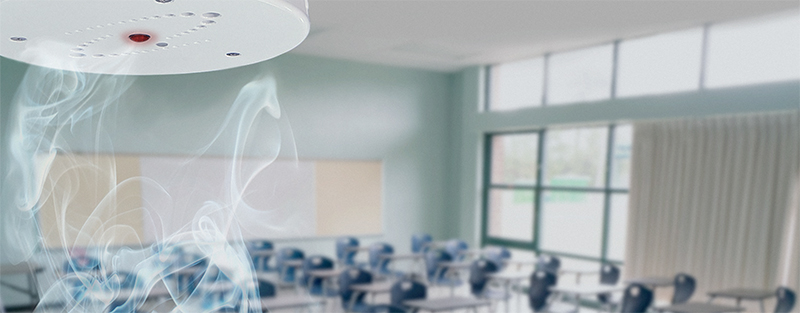
Having supported St Joseph’s Roman Catholic High School in Horwich, Ecl-ips is reaching out to more schools across Greater Manchester to help them to deal with vaping among their students. The company has also supported schools in nearby Staffordshire and Yorkshire by offering smart sensors to help them manage the problem.
While many schools are reticent about the issue, Tony McCabe, Headteacher at St Joseph’s RC High School, said: “There is a problem nationally. It’s a new pandemic that will grow unless we make enough noise… to make sure that young people are not at the centre of that market.”
Schools find the increasing number of students vaping within its toilets becomes hard to manage, and is often associated with anti-social behaviour, but the sensors can help with both issues. They can be placed discreetly in private areas, such as school toilets and changing rooms, that would be unsuitable for video camera surveillance.
Charlotte Slattery, Deputy Head Teacher, at St Joseph’s College in Stoke-on-Trent said: “We had seen an increase in incidents of vaping in our toilets. It was difficult to ‘prove’ that this was happening and to be able to respond in a timely way. Some toilets were believed to be more of a ‘hot spot’ than others and we focused on these toilets first.”
The Halo Smart Sensor can detect all forms of vaping, including when it is being masked by aerosols, as well as tetrahydrocannabinol (THC), which is found in cannabis. The detection of THC led to the exclusion of one of the pupils at another customer, Silverdale School in Sheffield.
Last summer, University of Bath Professor, Chris Pudney raised further concern about the dangers of vaping when a team he led tested confiscated vapes from schools across England. They found the dangerous and addictive drug, spice, in 1 in 6 (16.6%) of the 596 vapes confiscated. Professor Pudney believed that now vaping is so common among young people some want to experiment with cannabis, but they end up being sold vapes laced with spice rather than THC.



